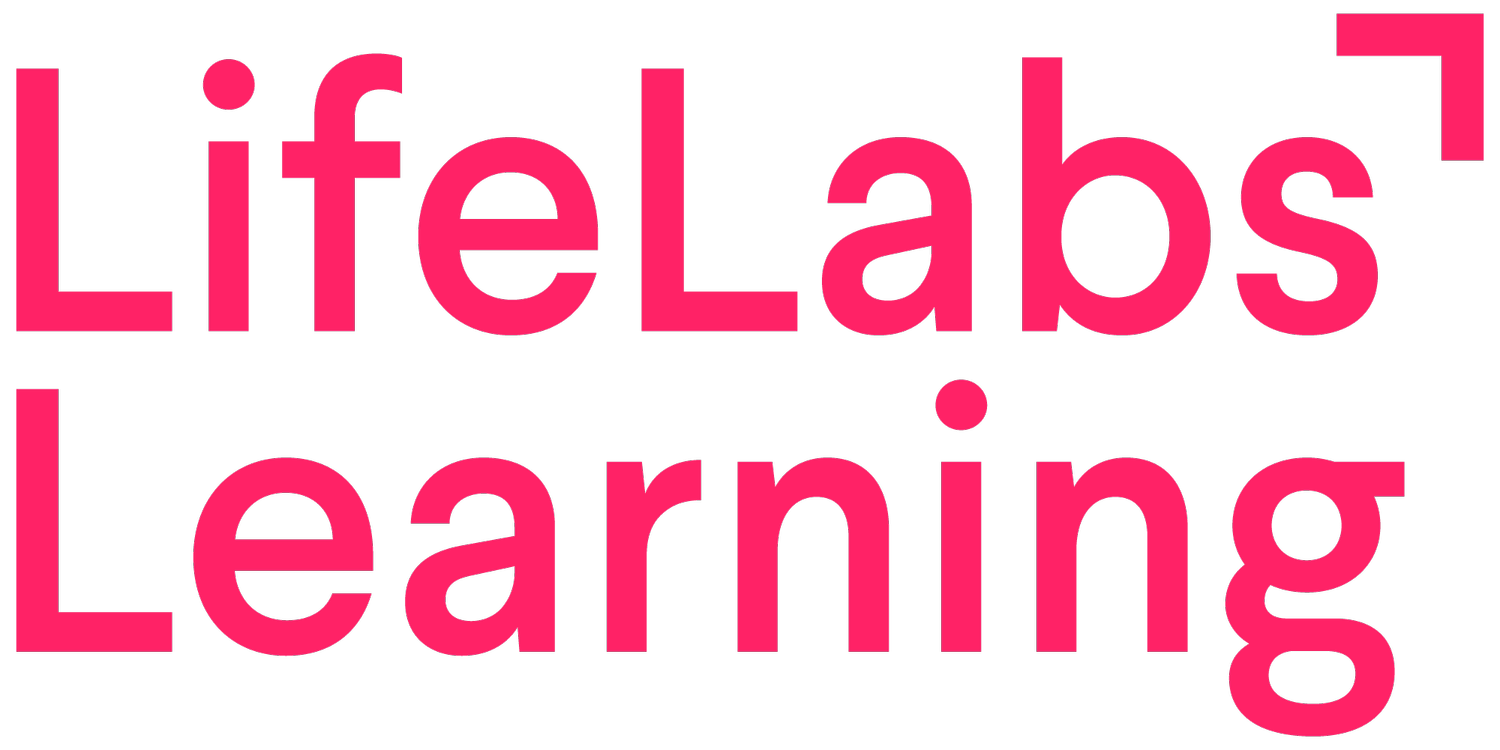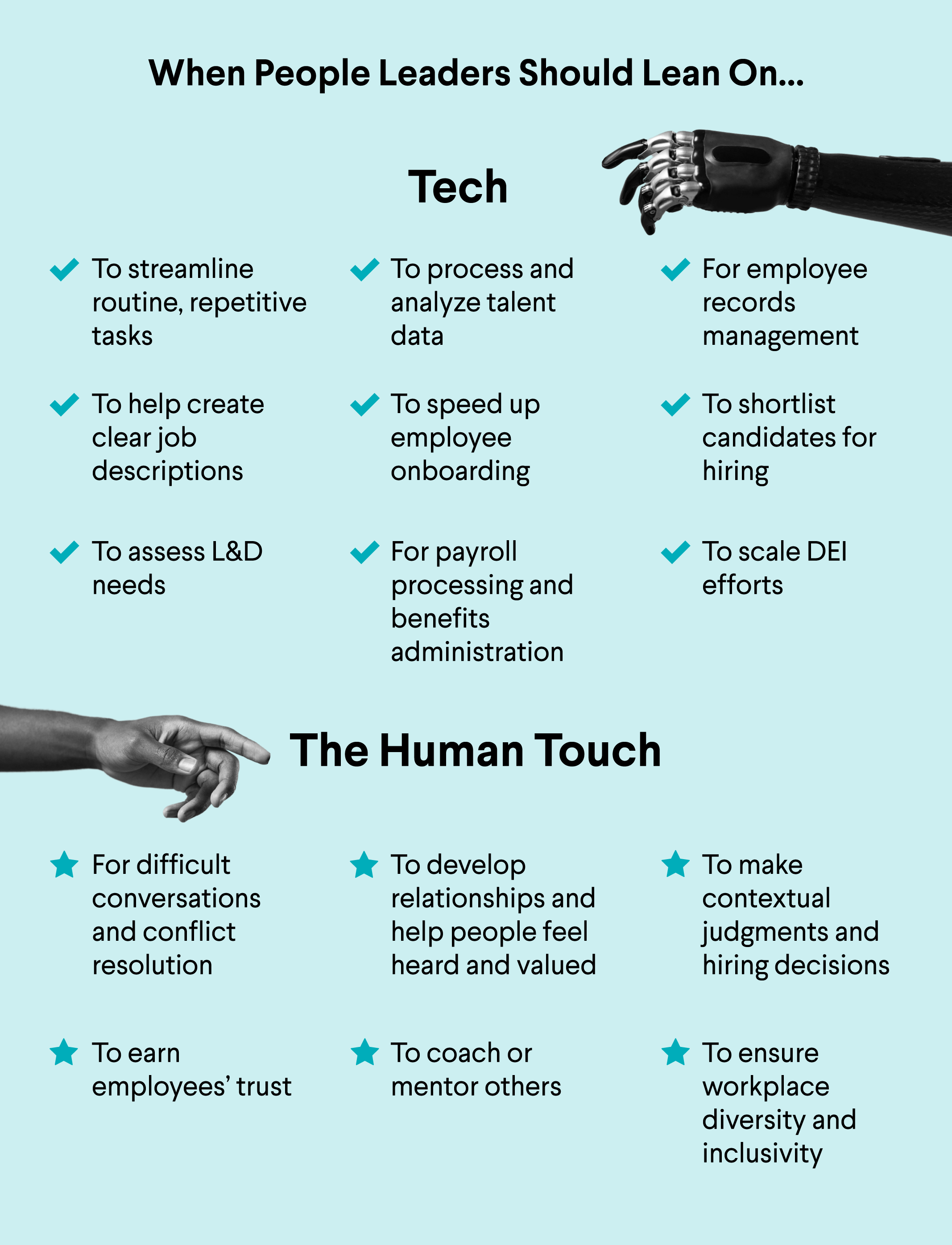AI and the Future of Work: Balancing Tech and the Human Touch
Think The Matrix, Blade Runner, and The Terminator – movie series that dive deep into the dance between humans and robots. Filmmakers love to play with the blurry lines where humanity meets artificial intelligence (AI). Now, with AI clocking in at our workplaces, this same dynamic is top of mind for people operations leaders who are exploring ‘how will AI affect the workforce in the future?’ and ‘what impact will AI have on the human role?’
AI future predictions and ideas on how artificial intelligence will change the future of work are as abundant as movies where humans and robots face off. At LifeLabs Learning, we’ve been listening, learning, and gathering insights into how people and advanced tech capabilities will coexist in this yet-to-be-fully-written story.
Grab your popcorn and join us as we dig into how humans and artificial intelligence can best join forces in the future of work.
The human touch in a tech-driven world.
In the OG Matrix flick, Agent Smith (the bad guy) drops the iconic line: "Never send a human to do a machine's job." We're flipping the script for today’s workplace. There are things AI simply can't nail, like emotional intelligence, creativity, and empathy. People-centric capabilities such as critical thinking, collaborating, and building genuine connections – this is where we shine (and what makes great leaders, too)! The human touch brings experience, perspective, and intuition to the workplace, all elements that can differentiate businesses and provide a competitive edge.
Recognizing how irreplaceable these human traits are, there’s a push to gear up leaders and teams with the essential know-how to rock these innate abilities at work. Things like leadership, communication, and creative problem-solving – known as soft skills or, as in our lingo, people skills – are the big players. Sharpening these skills readies leaders and teams to handle complex changes and situations – like the impact of artificial intelligence and the future of work – with ease and sensitivity.
Deloitte predicts that jobs requiring soft skills will make up two-thirds of all jobs by 2030, up from half in 2000. And soft-skill jobs are expected to grow 2.5 times faster than other occupations.
Collaborating with AI in Human Resources while keeping things human
Unlike the doom in dystopian dramas, today's AI is more of a helpful sidekick than a sci-fi villain. With massive potential, artificial intelligence is driving growth and change in every sector, including human resources (HR).
From talent acquisition to learning and development, AI can make HR processes and tasks more efficient, giving people leaders more time to hone in on improving the employee experience, which drives enhanced engagement, performance, and retention.
The key to keeping human resources human-centered while tapping into AI's amazing capabilities is finding the sweet spot where high-tech complements the human touch. Savvy leaders collaborate with AI, striking a balance between efficiency and authentic connections. This combined approach empowers everyone to be on their A-game while ensuring employees are happy, engaged, and ready for whatever the future throws at us.
“In 2030, humans’ reliance on technology will evolve into a true partnership with humans bringing skills such as creativity, passion, and an entrepreneurial mindset. This will align with the machines’ ability to bring speed, automation, and efficiencies, and the resulting productivity will allow for new opportunities within industries and roles.” ’- ‘Realizing 2030’ Dell research report
What you can do now: Cultivate a learning culture and invest in developing leaders with people skills like coaching, strategic thinking, and feedback that complement AI capabilities. Discover the 8 human-centered manager skills that make the biggest difference in the shortest time.
Change management skills in the era of AI.
In the Terminator saga, Skynet – a fictional AI system – sends Terminators back through time to change the future in its favor. While we can't travel through time, organizations gearing up for AI and the future of work can equip themselves with a powerful tool: change management skills.
Human nature might lean towards resisting change, but we have an innate ability to adapt to evolving circumstances. As AI takes on more job functions, employees armed with resilience can effortlessly transition to new tasks, bringing their distinctive human touch to high-value activities.
Gartner reports that 82% of HR leaders think their managers lack the essential skills to lead change. Bridging this readiness gap will be a defining factor for future-ready orgs.
What you can do now: Build organizational resilience with managers and teams equipped to handle change. Explore our 2 hour workshops, Leading Change and Adaptivity & Resilience, for you and your team today.
Closing credits: human touch in the spotlight.
As we wrap up our exploration of AI and the future of work, one thing stands out – the human touch plays a starring role in this unfolding narrative. Essential human-centered skills, ranging from empathy and creativity to communication and collaboration, have a lasting and vital part in the future of work, standing side-by-side with the significant contributions promised by artificial intelligence.
Explore AI trends and their impact on HR and people ops leaders in our on-demand virtual panel discussion: The Impact of AI on HR. Watch Now



